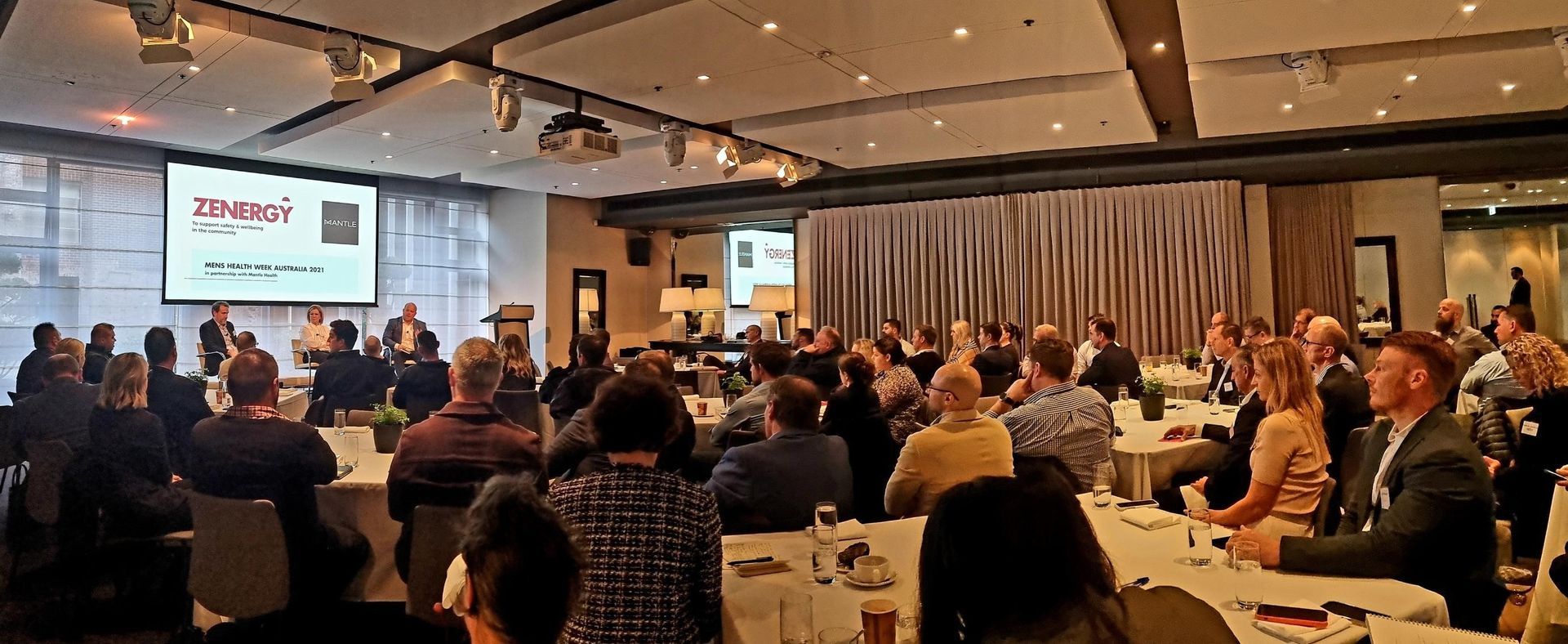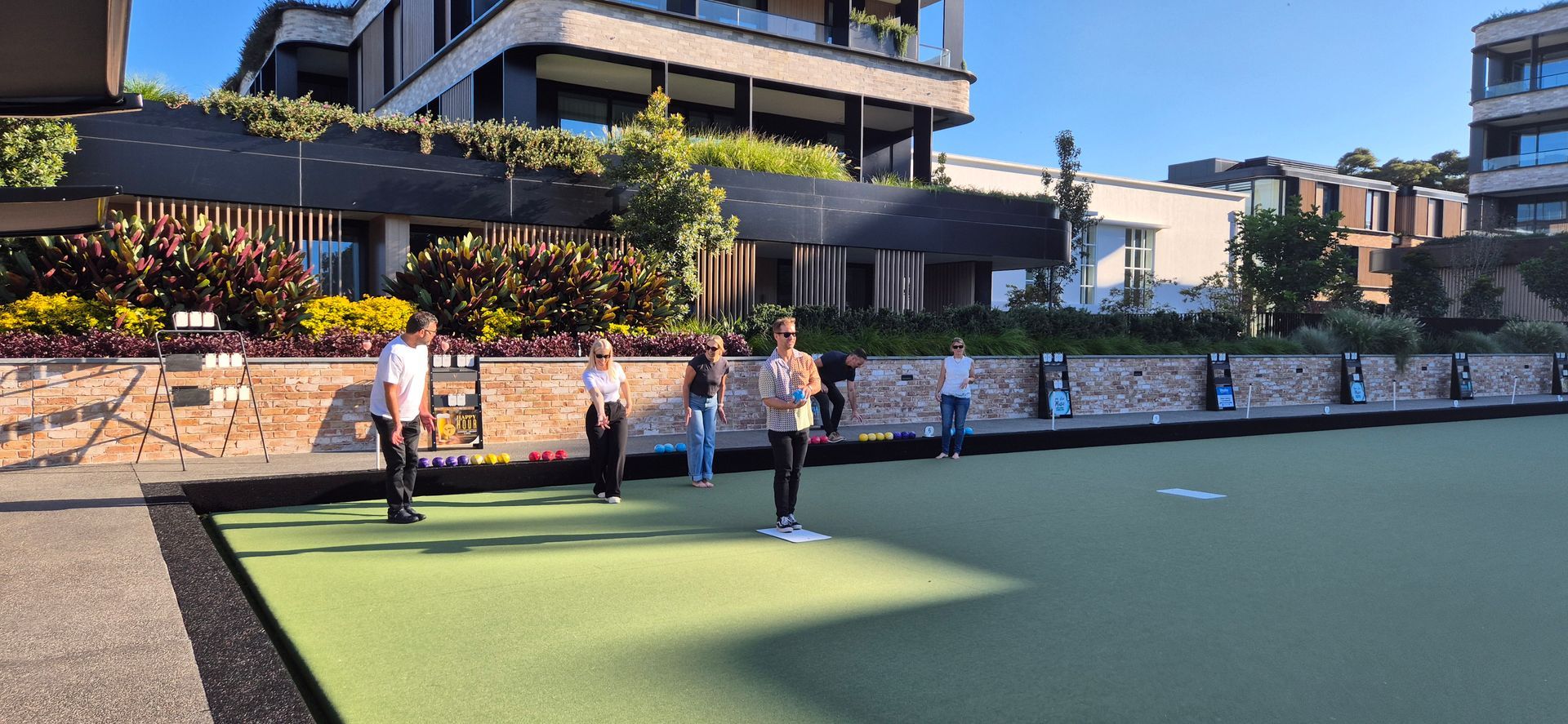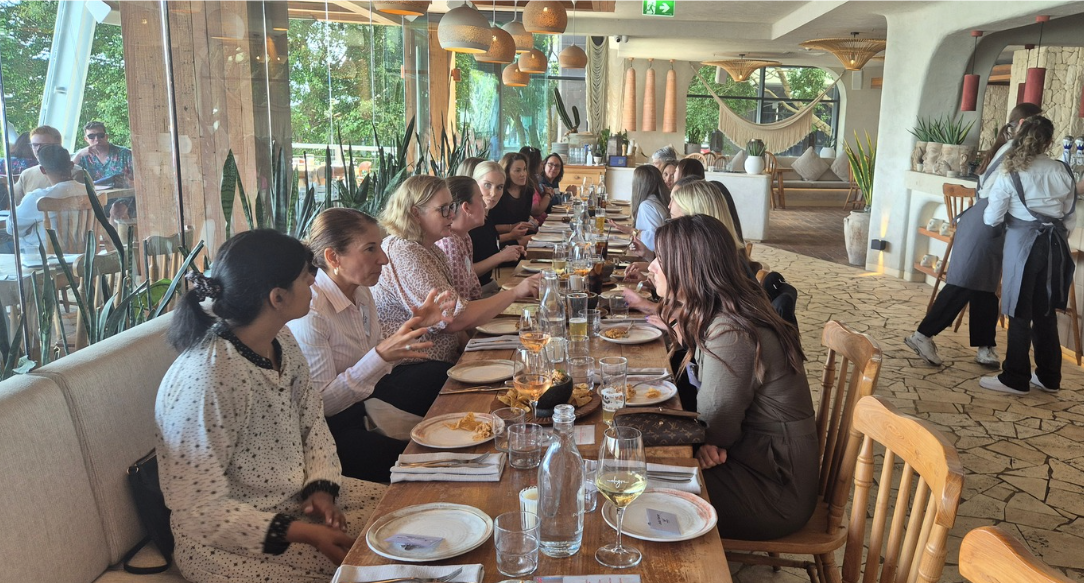Zenergy News

22 Apr, 2024
The annual Zenergy Leaders Forum is one of the premier events on the senior health, safety & sustainability calendar in Australia. This is a non-ticketed invitation only event hosted by Zenergy. Attendee numbers at the Zenergy forum are 150 and will include executive, people and culture directors, CEO, COO and directors of health & safety and HSE personnel. The topic for this year is “Integrated Psychosocial Risk Management”. All of the event information is below and reach out to your account manager at Zenergy for further details.

22 Apr, 2024
This article has been reproduced with permission from OHS Alert, and the original version appears at www.ohsalert.com.au . A commission has cautioned that society's "significantly raised" bar for what constitutes consent for physical interactions is "even higher" in work-related environments, in upholding the summary dismissal of a worker for inappropriately touching a colleague. In Perth, Fair Work Commission Deputy President Melanie Binet said that regardless of the intention of the worker, who claimed he was simply moving his female colleague "out of the way", his conduct was a valid reason for dismissal. Workers should be "on notice" of the increased scrutiny of behaviours, given the extensive social discourse and media coverage on sexual harassment issues, she said. "This is particularly so in the mining industry in Western Australia where a parliamentary inquiry [see related article ] focused community attention on the odious frequency of sexual harassment and assault of women in the mining industry." The Deputy President added that recent amendments to the Commonwealth Fair Work Act 2009 that specifically identify sexual harassment as a valid reason for dismissal (see related article ) "reflect a societal recognition that sexual harassment has no place in the workplace in the same way as violence or theft don't". The worker was an Alcoa of Australia Ltd advanced mechanical tradesperson when he was sacked for inappropriately touching the colleague in an office at Alcoa's Pinjarra Alumina Refinery in September last year. The worker claimed he turned his back to the colleague to squeeze between her and a desk to go to speak to another person and his hands made contact with her lower torso. Afterwards, the colleague's partner entered the office and found her visibly distressed. He confronted the worker, accusing him of grabbing the colleague's buttocks and squeezing it. The issue was escalated, and the worker was summarily dismissed after an investigation concluded he sexually harassed the colleague by making "unwelcomed and socially inappropriate physical contact". Alcoa found the worker breached codes and policies that he had been trained on, which stated that harassment was not determined by the intent of the person who engaged in the conduct but by the impact on the recipient. The worker admitted touching the colleague but claimed this only occurred because the room was crowded. He said he did not intend to behave in a sexual manner and apologised to the colleague as soon as he found out she was upset. He claimed unfair dismissal and sought reinstatement in the FWC. Deputy President Binet found the worker's accounts of the incident were inconsistent, with the parts of the colleague's body that he touched changing in his various statements. She accepted the colleague's evidence that the worker groped her in an "intimate sexual location" and his conduct caused immediate and ongoing effects to her health and wellbeing. The worker could have waited until there was space for him to pass between the desks, requested the colleague to move from the gap or gently touched her arm to get her attention, the Deputy President said. "There was simply no justification for him to turn his back then have his hands at [the colleague's] buttocks level, touch her buttocks and consciously push her out of his way," she said. "I am not convinced that [his] conduct was intended to be entirely without a sexual nature," she concluded. She stressed that even if she was wrong on this point, this type of unwelcome touching could objectively be seen as being capable of making recipients feel offended, humiliated or intimidated. The Deputy President also slammed the worker's representatives for choosing "to follow a well-worn but discredited path of blaming the victim" by accusing the colleague of inviting the "accidental" contact by standing in the narrow walkway. "Women should be able to attend their workplaces without fear of being touched inappropriately," she said in dismissing the worker's case. "It is a sad inditement of the positive work that has been undertaken by employers, unions and regulatory bodies in the mining industry that young women like [the colleague] are still frightened to report incidents of harassment for fear of being ostracised."

16 Apr, 2024
Safety blitz to prevent deaths and injuries from construction falls WorkSafe Victoria recently launched a statewide blitz to tackle fall risks on building sites, such as unsafe or incomplete scaffolds, inappropriate ladder use, steps, stairs and voids or falling from or through roofs. The initiative was launched after nine Victorian workers died in 2023 as a result of falls from height, including four in the construction industry. The number of accepted workers’ compensation claims from construction workers injured in falls from heights also increased to 441 – up from 421 in 2022 and 404 the year before. Construction continues to be the highest-risk industry for falls from heights, making up a third of the 1352 total falls from height claims accepted last year. Of the construction workers injured, 160 fell from ladders, 46 from steps and stairways, 31 from buildings or structures, 27 from scaffolding, and 13 from openings in floors, walls or ceilings. WorkSafe Victoria executive director of health and safety, Narelle Beer, said inspectors would be out in force with an extra emphasis on ensuring employers are doing everything they can to prevent falls. “As a leading cause of injury in the construction industry, falls from height is always a priority for our inspectors – but they will be making this a particular focus as they visit building sites over the coming weeks,” Beer said. “The safest way to prevent falls is to work on the ground. Where that’s not possible, employers should use the highest level of safety protection possible, such as complete scaffolding, guard railing and void covers.” Beer said WorkSafe Victoria can and will take action against employers who fail to ensure the highest level of risk control measures are in place to protect workers from falls. “A fall can happen in just seconds and it can turn your world upside down – so there’s no excuse for taking shortcuts when working at heights,” she said. The statewide blitz will be supported by fall prevention messaging across social media, newsletters and online, reminding employers and workers that fall can be fatal or cause life-changing injuries. Source: Australian Institute of Health & Safety (AIHS)

29 Feb, 2024
Exploring the Frucor Suntory office in North Strathfield marked a recent highlight for Zenergy. Guided by Sasha Abram , the Health Safety and Wellbeing Director, Kathleen Melville and Giulia Giovagnoli highly valued the opportunity to tour Frucor Suntory's cutting-edge office, especially following the recent placement of their HSE Manager, and gained invaluable insights into Frucor's ambitious growth plans for the upcoming year. Frucor Suntory stands as a prominent player in the Oceania beverage industry, notably dominating the energy drinks market in Australia and New Zealand. Zenergy is thrilled to partner with such a growing enterprise, currently embarking on an exciting new chapter. By harnessing the best of Suntory from across Australia and New Zealand, Beam Suntory, and Frucor Suntory, they are creating a new multi-beverage powerhouse – Suntory Oceania. Zenergy is eagerly embracing the chance to be part of this journey. This tour offered us an insider's perspective on their beverage offerings and even affords us the opportunity to sample their products.

28 Feb, 2024
What are the WHS implications of the “right to disconnect” Workers will be able to refuse to monitor, read or respond to contact from their employer as part of a new law which grants them the “right to disconnect” from work outside of normal working hours, unless the refusal is unreasonable. The Closing Loopholes Bill No. 2, which was recently passed by federal parliament, was one of the more contentious rights granted under the legislative changes. Greens Senator Barbara Pocock said the newly legislated right will make a difference for workers who are not paid for being available and who donate many unpaid hours to their workplace. “In implementing this right, we are playing catch up with 20 other nations who have already acted on this massive problem,” she said. “This change will help workers protect their mental health and improve work-life balance. It will especially help those in insecure jobs who need that legislative backup.” Shadow Minister for Employment and Workplace Relations Michaelia Cash said the law opens up another level of complexity for businesses at a time when they are doing it very tough. “In a country with five time zones during the summer months and in a globally competitive economy, it’s not clear how this will help increase productivity in the workplace,” she said. Employers also took issue with the law, claiming they are impractical and will add unwarranted conflict and uncertainty into workplaces. “There are already provisions in the Fair Work Act and awards that regulate the extent to which employees can be unreasonably required to work outside normal hours,” said Innes Willox, chief executive of employer association Ai Group. “These changes were unfortunately added into the mix at the last moment, without being properly thought through, with a view to securing the Greens’ support for the passage of the rest of the legislation.” Unions welcomed the passing of the Bill and said the law will give new rights to casual and gig workers, protect road transport workers, and provide new rights for workers to disconnect from work when they are not being paid. “For the first time, all Australian workers will have the right to refuse unreasonable, unpaid work such as the expectation they will monitor and respond to emails out of hours in which they are being paid,” said ACTU secretary Sally McManus. Long working hours have recently come under increased scrutiny, especially following COVID and a widespread trend for workers to put in longer hours given many no longer had commutes and found it difficult to disconnect as their workplace and home became one and the same. A Centre for Work Health and Safety survey found that, due to the ability to work from home, employees were working longer hours, experienced increased demands from their superiors or found it hard to ‘switch off’ from work outside of work hours. Another survey by the Centre for Future Work found that 71 per cent of employees had worked outside their scheduled work hours often due to overwork or pressure from managers. The survey found that the most commonly experienced negative consequences of overtime work were physical tiredness (35 per cent), followed by stress and anxiety (32 per cent), and being mentally drained (31 per cent). Parliamentary inquiries have also examined how the advancement of technology has led to “availability creep”, where employees feel they need to be available all the time to answer emails, calls or simply deal with their workload. “This has only been exacerbated by the pandemic,” the Select Committee on Work and Care Interim Report stated. “Availability creep impacts mental health, exacerbates work-life stress, impacts on productivity and takes workers away from a fair day’s work for a fair day’s pay.” The new “right to disconnect” law contains important exemptions for employers where after-hours contact would be considered reasonable. In certain industries and occupations, the right of disconnect will be limited because of the need to monitor certain work-related communications. Employers would also be able to contact workers about matters such as rostering and shift work, in an emergency, where there is a WHS concern, or where a worker receives appropriate compensation. In taking into account whether a refusal by an employee is unreasonable, a number of employee-related matters must also be considered, including the nature of the employee’s role and the employee’s level of responsibility, and the employee’s personal circumstances (including family or caring responsibilities). Source: Australian Institute of Health & Safety (AIHS)
Categories
How can we help you?
Contact us for any help, more information or any business enquiries.
Contact Us
For more information on our services feel free to email us on -
info@zenergygroup.com.au or call 1300 333 400
Sydney
25 Brisbane Street
Surry Hills
Sydney NSW 2010
Melbourne
Level 23, Tower 5, Collins Square
727 Collins Street
Melbourne VIC 3008
Brisbane
Level 54, 111 Eagle Street
Brisbane QLD 4000
Perth
Level 25, 108 St Georges Terrace
Perth WA 6000
Recent News

22 Apr, 2024
The annual Zenergy Leaders Forum is one of the premier events on the senior health, safety & sustainability calendar in Australia. This is a non-ticketed invitation only event hosted by Zenergy. Attendee numbers at the Zenergy forum are 150 and will include executive, people and culture directors, CEO, COO and directors of health & safety and HSE personnel. The topic for this year is “Integrated Psychosocial Risk Management”. All of the event information is below and reach out to your account manager at Zenergy for further details.

22 Apr, 2024
This article has been reproduced with permission from OHS Alert, and the original version appears at www.ohsalert.com.au . A commission has cautioned that society's "significantly raised" bar for what constitutes consent for physical interactions is "even higher" in work-related environments, in upholding the summary dismissal of a worker for inappropriately touching a colleague. In Perth, Fair Work Commission Deputy President Melanie Binet said that regardless of the intention of the worker, who claimed he was simply moving his female colleague "out of the way", his conduct was a valid reason for dismissal. Workers should be "on notice" of the increased scrutiny of behaviours, given the extensive social discourse and media coverage on sexual harassment issues, she said. "This is particularly so in the mining industry in Western Australia where a parliamentary inquiry [see related article ] focused community attention on the odious frequency of sexual harassment and assault of women in the mining industry." The Deputy President added that recent amendments to the Commonwealth Fair Work Act 2009 that specifically identify sexual harassment as a valid reason for dismissal (see related article ) "reflect a societal recognition that sexual harassment has no place in the workplace in the same way as violence or theft don't". The worker was an Alcoa of Australia Ltd advanced mechanical tradesperson when he was sacked for inappropriately touching the colleague in an office at Alcoa's Pinjarra Alumina Refinery in September last year. The worker claimed he turned his back to the colleague to squeeze between her and a desk to go to speak to another person and his hands made contact with her lower torso. Afterwards, the colleague's partner entered the office and found her visibly distressed. He confronted the worker, accusing him of grabbing the colleague's buttocks and squeezing it. The issue was escalated, and the worker was summarily dismissed after an investigation concluded he sexually harassed the colleague by making "unwelcomed and socially inappropriate physical contact". Alcoa found the worker breached codes and policies that he had been trained on, which stated that harassment was not determined by the intent of the person who engaged in the conduct but by the impact on the recipient. The worker admitted touching the colleague but claimed this only occurred because the room was crowded. He said he did not intend to behave in a sexual manner and apologised to the colleague as soon as he found out she was upset. He claimed unfair dismissal and sought reinstatement in the FWC. Deputy President Binet found the worker's accounts of the incident were inconsistent, with the parts of the colleague's body that he touched changing in his various statements. She accepted the colleague's evidence that the worker groped her in an "intimate sexual location" and his conduct caused immediate and ongoing effects to her health and wellbeing. The worker could have waited until there was space for him to pass between the desks, requested the colleague to move from the gap or gently touched her arm to get her attention, the Deputy President said. "There was simply no justification for him to turn his back then have his hands at [the colleague's] buttocks level, touch her buttocks and consciously push her out of his way," she said. "I am not convinced that [his] conduct was intended to be entirely without a sexual nature," she concluded. She stressed that even if she was wrong on this point, this type of unwelcome touching could objectively be seen as being capable of making recipients feel offended, humiliated or intimidated. The Deputy President also slammed the worker's representatives for choosing "to follow a well-worn but discredited path of blaming the victim" by accusing the colleague of inviting the "accidental" contact by standing in the narrow walkway. "Women should be able to attend their workplaces without fear of being touched inappropriately," she said in dismissing the worker's case. "It is a sad inditement of the positive work that has been undertaken by employers, unions and regulatory bodies in the mining industry that young women like [the colleague] are still frightened to report incidents of harassment for fear of being ostracised."
© ZENERGY 2022 | Privacy Policy |







